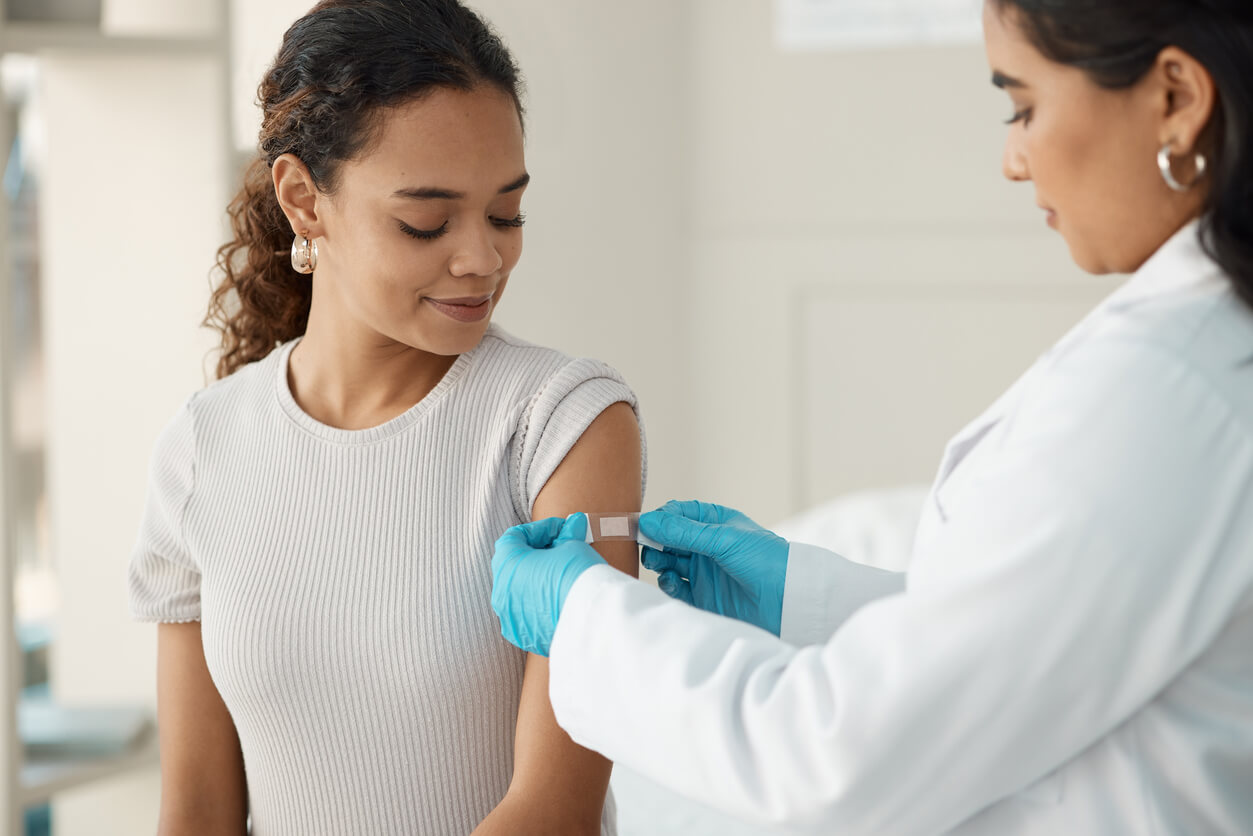
Vaccinations play a crucial role in maintaining public health by preventing the spread of infectious diseases. From childhood to old age, immunizations are essential for protecting individuals and communities from potentially serious illnesses.
Let’s explore the basics of vaccinations, including how they work, why they are important, and which vaccines are recommended at different stages of life.
The Basics: What is Vaccination?
Vaccination is the process of introducing a weakened or killed microorganism into the body via injection.
Vaccines usually work by stimulating the immune system of the body to produce an immune response without causing the disease itself. When a person is vaccinated, their body recognizes the vaccine as a foreign invader and produces antibodies to fight it off.
These antibodies remain in the body’s memory cells, ready to respond quickly if the person is exposed to the actual disease in the future.
Why are vaccinations important?
Vaccinations are important because they help protect individuals from serious and sometimes deadly diseases. By getting vaccinated, you are not only protecting yourself but also helping to prevent the spread of diseases within your community.
This concept is known as herd immunity, where a high percentage of people in a population are vaccinated, making it harder for diseases to spread.
Are vaccines safe?
Vaccines undergo rigorous testing before being approved for use by regulatory agencies such as the FDA and CDC. While all medical interventions carry some risk, the benefits of vaccinations far outweigh any potential side effects or associated risks.
Serious adverse reactions to vaccines are rare, and most people experience only mild side effects like soreness at the injection site or low-grade fever.
Which Vaccines Are Recommended at Different Stages of Life?
Vaccines play a critical role in protecting us from various diseases at different stages of life. Here’s a simplified breakdown of the recommended vaccines for various ages:
Infancy and Early Childhood (Birth to 6 years)
During this stage, several vaccines are administered to provide immunity early in life. According to the CDC, infants and children up to six years old should receive immunizations for:
- Polio (IPV)
- Pneumococcal (PCV)
- Rotavirus (RV)
- Hepatitis B (HepB)
- Measles, Mumps, and Rubella (MMR), with the first dose recommended at 12 months of age or older
- Diphtheria, Tetanus, and Pertussis (DTaP)
- Hepatitis A
- Haemophilus influenzae type b (Hib)
Children should also get one or two doses of flu vaccine yearly.
Adolescence
As children grow into teenagers, they need booster shots and additional vaccines to keep their immunity strong. The CDC recommends that all teenagers should be up-to-date on the following vaccines:
- Human Papillomavirus (HPV) vaccine
- Meningococcal conjugate vaccine
- Tdap booster shot for Tetanus, Diphtheria, and Pertussis
- COVID-19 vaccine
- Flu vaccine
Adult
Vaccinations are not just for kids – adults also need to stay current on their immunizations to protect themselves and those around them. Some vaccines recommended for adults include:
- Annual flu shots
- Tdap (tetanus, diphtheria, pertussis)
- Shingles vaccine
- Pneumococcal vaccine
These vaccines can help prevent serious complications from diseases like influenza, whooping cough, shingles, and pneumonia.
How Can a Primary Care Physician Ensure You Receive Proper Immunization Across Your Lifespan?
Primary care physicians (PCPs) are integral to managing your health, including ensuring you receive the appropriate vaccinations at each stage of life. They create a personalized vaccination schedule based on your age, health status, lifestyle, and even travel plans.
By tracking your health history, they can identify which vaccines you’ve already had and what you might need in the future. This long-term relationship means they’re well-placed to manage your preventive healthcare, including timely vaccinations.
PCPs also play a crucial role in administering these vaccines. After assessing your vaccination status, they can determine what vaccines you need, screen for any contraindications, and administer the vaccines.
They use trusted resources like CDC guidelines to ensure you follow the most up-to-date schedules. This contributes significantly to your overall health and protection against various diseases.
In addition to creating and implementing your vaccination plan, your PCP helps maintain your immunization records, which is essential for understanding your immunity status.
Primary Care Physician Near Me in Wellington & Palm Beach, FL
At Advanced Medical, we understand the pivotal role vaccinations play in safeguarding your health throughout your lifespan. Our team of experienced providers, led by Dr. Ishan Gunawardene, a board-certified internal medicine specialist, and Shariffa Gunawardene, a board-certified family nurse practitioner, is dedicated to providing comprehensive and personalized vaccination plans for you and your loved ones.
Whether it’s your child’s first vaccine or a booster shot as an adult, we ensure that your immunizations are up-to-date and align with the latest guidelines.
To learn more about vaccination, request an appointment with our primary care physician, Dr. Ishan Gunawardene, using our online form or call us at (561) 434-1935 today. We look forward to serving you!

